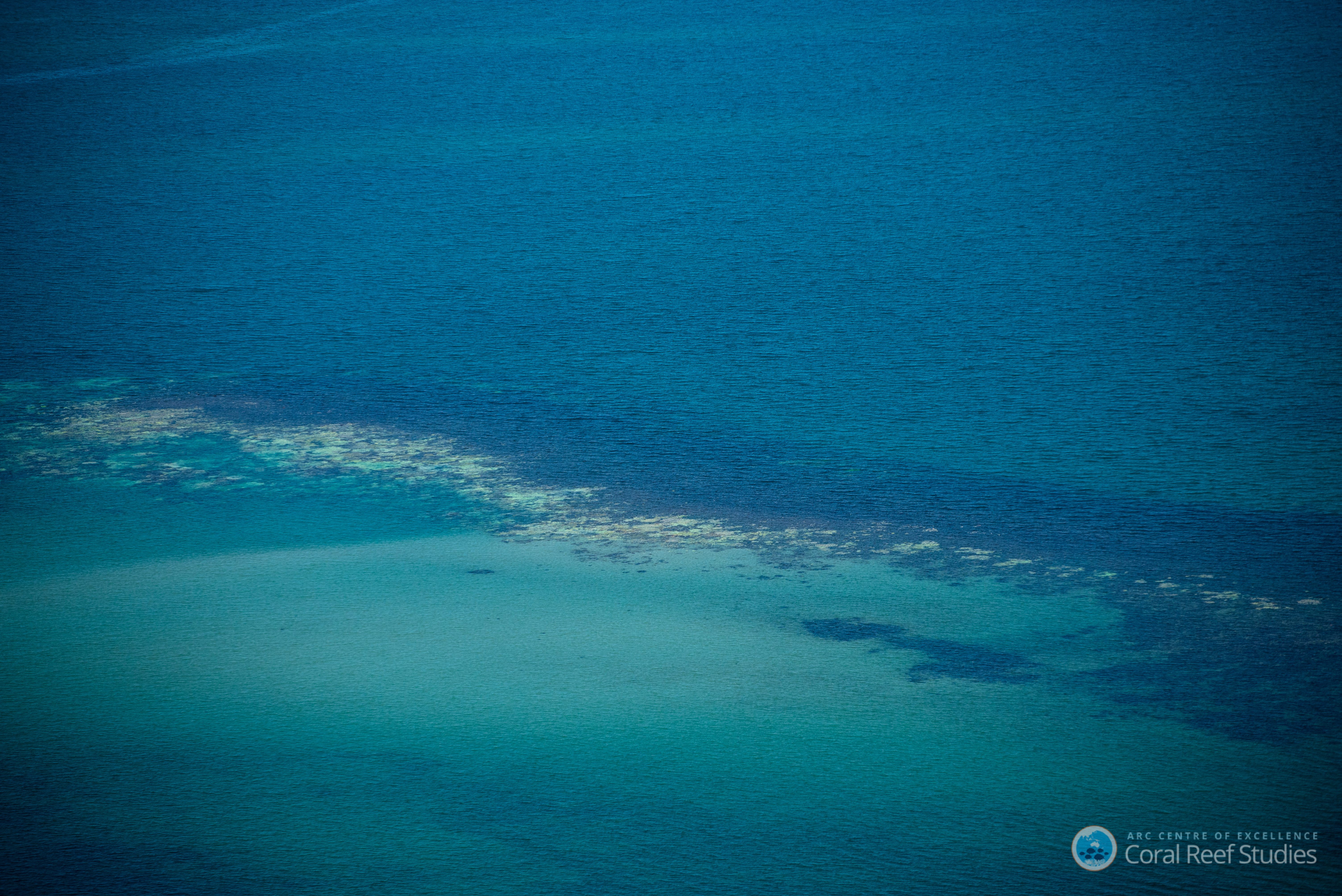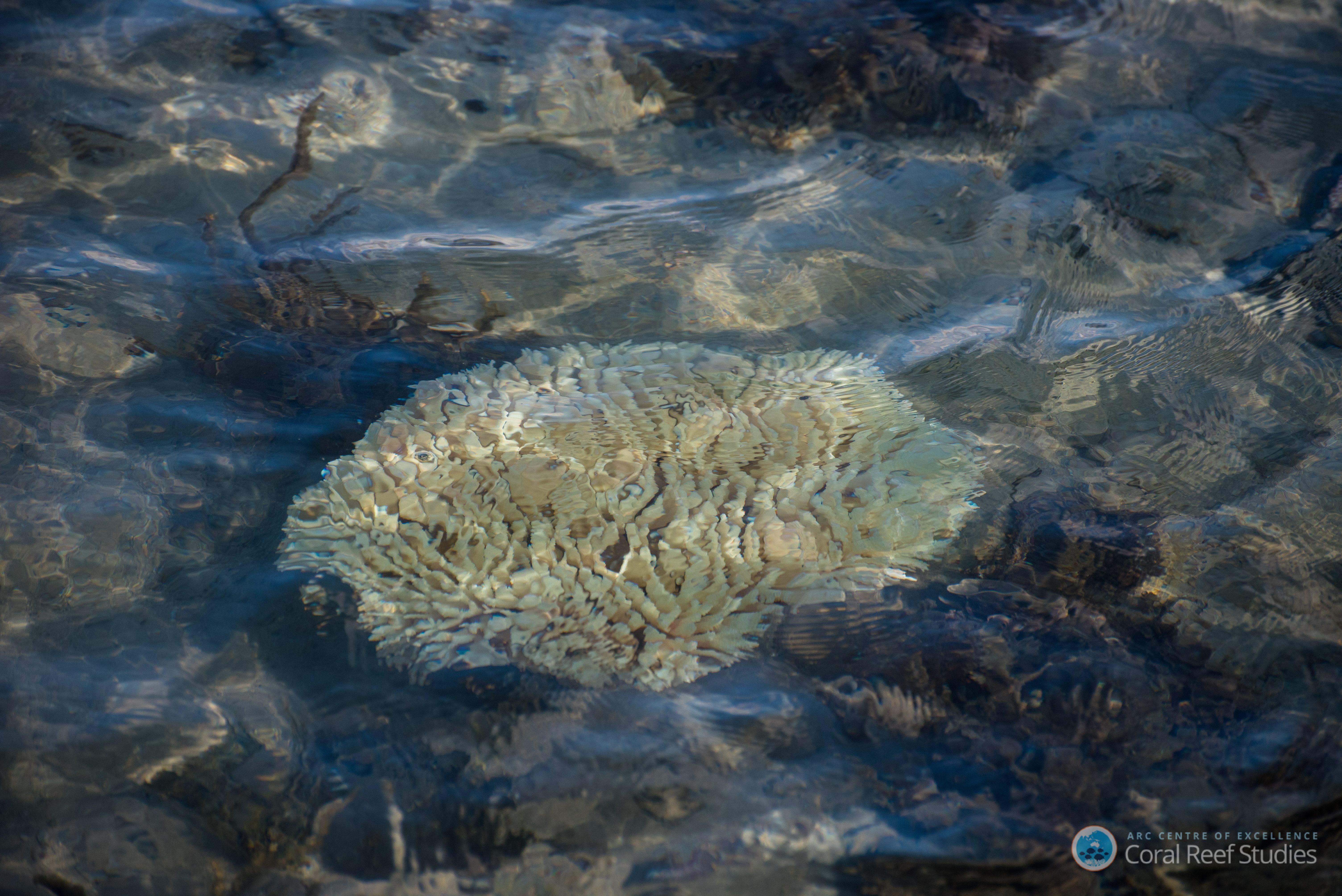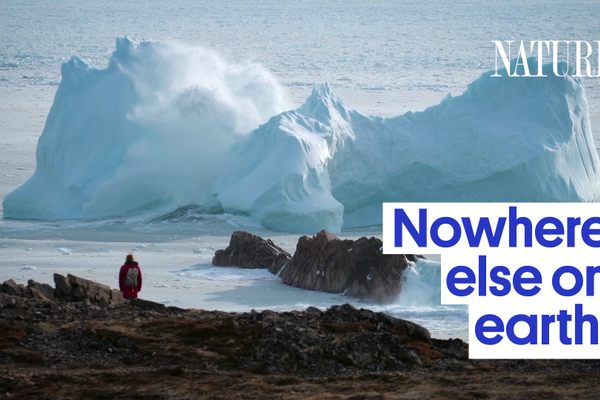The Worst Bleaching in the History of the Great Barrier Reef
Scientists are sounding the alarm.

An aerial photo of the bleaching. (Photo: ARC Centre of Excellence for Coral Reef Studies)
When corals are stressed by factors like warmer ocean temperatures, algae living inside of them is expelled, turning the corals white and inducing a phenomenon known by scientists as bleaching.
This doesn’t mean coral death, but it could, given enough time. At Australia’s Great Barrier Reef, bleaching has occurred several times before, killing off around five percent of the coral since 1985. But the reef, a United Nations World Heritage Site, has largely survived past bleaching events.
It many not be so lucky this time. An Australian team recently took to the skies and water to document the most recent outbreak of bleaching, which they’ve spotted on over 500 reefs, calling it the worst bleaching event in the Great Barrier Reef’s recorded history.
“This has been the saddest research trip of my life,” says Terry Hughes, leader of the National Coral Bleaching Taskforce in Australia. “Almost without exception, every reef we flew across showed consistently high levels of bleaching, from the reef slope right up onto the top of the reef.”

A close-up shot of the bleaching. (Photo: ARC Centre of Excellence for Coral Reef Studies)
The aerial survey was undertaken on a portion of the Great Barrier Reef north of Cairns, Australia, which scientists said was among the reef’s strongest. Their survey of the northern reef included about 2,400 miles of flying.
“We could see extensive bleaching even among the most robust ‘massive’ corals,” says James Kerry, who also participated in the aerial surveys. “The fact that these hardy species have also turned white shows just how severe summer conditions have become on the northern GBR.”
One bit of good news, according to Hughes, is that the southern portion of the reef is in relatively good shape. Cloudy weather there, Hughes says, brought water temperatures down, allowing coral to live on.
“Thankfully,” he said, “the southern reef has dodged a bullet.”











Follow us on Twitter to get the latest on the world's hidden wonders.
Like us on Facebook to get the latest on the world's hidden wonders.
Follow us on Twitter Like us on Facebook